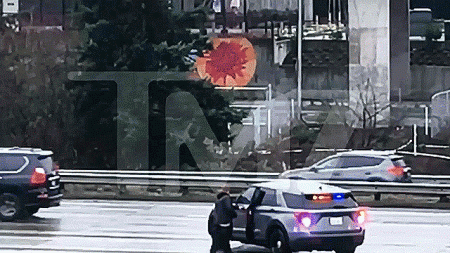On July 27, 2023, South Korea’s political landscape witnessed a clash between the ruling and opposition parties, centering around a contentious attempt by the opposition to impeach President Yoon Suk Yeol. This attempt, however, was swiftly blocked by the ruling People Power Party (PPP), marking the latest development in a series of escalating political tensions. While the specific grounds for impeachment remain somewhat opaque in the immediate aftermath, this move followed a period of heightened political friction, including a brief but alarming attempt by President Yoon to declare martial law, which was quickly rescinded. The opposition’s push for impeachment seemingly stemmed from a culmination of grievances against President Yoon’s governance, policies, and perceived authoritarian tendencies. This incident underscores the deep political polarization that characterizes South Korean politics and the ongoing power struggle between the ruling and opposition forces.
The failed impeachment attempt can be understood within the context of South Korea’s complex political dynamics. President Yoon, a conservative figure, has faced consistent opposition from the liberal Democratic Party of Korea (DPK), which holds a majority in the National Assembly. This parliamentary majority gives the DPK the power to initiate impeachment proceedings, though it requires a two-thirds majority vote to pass. The PPP’s successful blocking of the motion demonstrates the significant hurdles the opposition faces in holding President Yoon accountable, even with their numerical advantage. The incident also highlights the limitations of impeachment as a political tool, as it can become entangled in partisan maneuvering, diverting attention from substantive policy debates.
The backdrop to this confrontation includes President Yoon’s brief flirtation with martial law, a drastically extreme measure that raised serious concerns about the stability of South Korean democracy. While the precise circumstances surrounding this incident remain somewhat shrouded, it clearly contributed to the opposition’s decision to pursue impeachment. The attempt to invoke martial law, even if short-lived, signaled a potential willingness on the part of the president to circumvent established democratic processes, further fueling the opposition’s apprehension and deepening the political rift between the two sides. This episode undoubtedly fueled the perception of an increasingly authoritarian approach from the president and intensified the existing polarization.
The implications of this failed impeachment bid are multifaceted and far-reaching. For President Yoon, it represents a short-term victory, as he has successfully avoided removal from office. However, it simultaneously exposes the deep political divisions within the country and the fragility of the current political order. The opposition’s move, though unsuccessful, signals their determination to challenge President Yoon’s authority and policies. This ongoing power struggle could lead to further political instability and gridlock, hampering the government’s ability to address critical national issues. The political climate, already highly charged, risks becoming further inflamed, with potential long-term consequences for South Korea’s democratic institutions.
The specific issues that prompted the impeachment attempt remain somewhat unclear in the immediate aftermath, underscoring the need for greater transparency in South Korea’s political processes. While the opposition’s grievances are undoubtedly complex and multifaceted, it is crucial for these concerns to be aired publicly and debated openly. Without a clear understanding of the underlying issues, the potential for misunderstanding and misrepresentation increases, further exacerbating political tensions. Open communication and dialogue are essential for resolving political disputes and fostering a more constructive political environment. This lack of transparency fuels speculation and mistrust, hindering efforts towards reconciliation.
Looking ahead, the failed impeachment attempt is likely to further escalate the already tense relationship between the ruling and opposition parties. The opposition may continue to explore alternative avenues for challenging President Yoon’s leadership, while the ruling party will likely double down on its defense of the president. This ongoing power struggle could lead to further political paralysis and instability, hindering South Korea’s ability to address pressing domestic and international challenges. Both sides must prioritize dialogue and compromise to avoid further exacerbating the political divide and undermining the stability of South Korea’s democratic institutions. The focus should shift towards constructive engagement and addressing the underlying issues that fuel this political conflict. A failure to do so risks deepening the polarization and further destabilizing South Korean politics.










